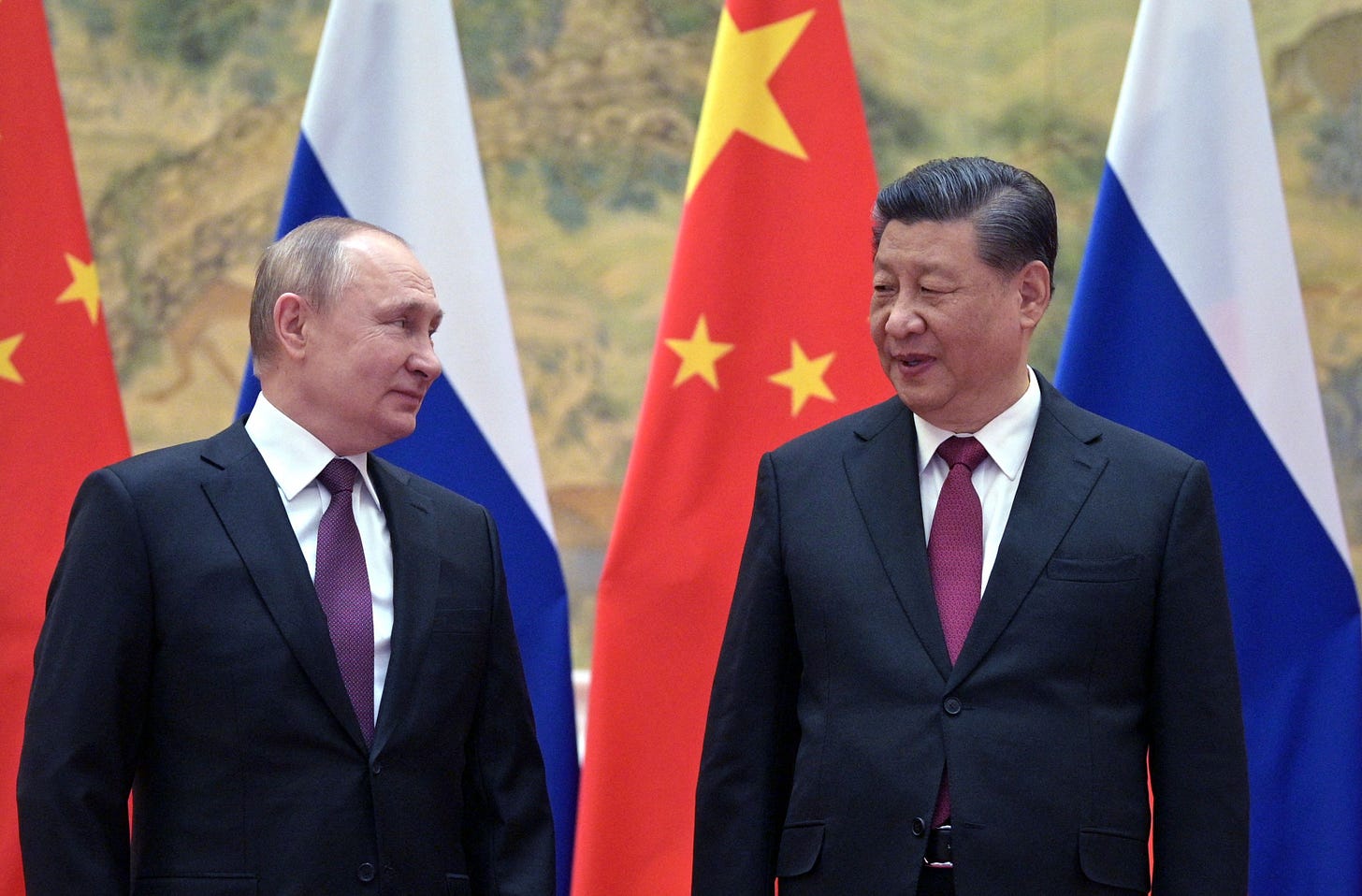All the Trouble in the World
This week's podcast: The ramifications of the war in Ukraine, nearly all negative, are global
Dear readers,
A new episode of the Very Serious podcast, featuring Michael Singh from the Washington Institute for Near East Policy, is out today. Mike is a former National Security Council official, and we talked about the ramifications of the Ukraine war, which reach from China to the Middle East to as far as Venezuela.
You can listen by clicking the button below. I also have some written thoughts below that draw on my conversation with Mike about all this global trouble. A scheduling note: tomorrow’s issue will be for paid subscribers only. Everyone else will next hear from me on Tuesday.
One of the senseless aspects of Russia’s invasion of Ukraine is that it benefits almost nobody.
The war is obviously a humanitarian disaster for Ukraine that may end with it conquered by a hostile power. But Russia is losing too — its economy is battered by sanctions, its troops appear to be dying in significant numbers, and what kind of prize would Ukraine be after all this is over, with its bombed-out buildings and hostile citizenry?
One of the more hopeful stories over the last few weeks is Europe’s reorientation toward unity and self-defense, with Germany announcing welcome plans to invest more heavily in its own military. But of course, that shift is only happening because Russia poses such a grave and apparent threat to the continent.
The war means higher energy prices globally. That means pain for American consumers, but it also means a broad hit to global economic output — people will do less, have less, make less. The US is not likely to fall into a recession, but other countries with more economic exposure to the war will. Grain prices have spiked — together, Russia and Ukraine provide 25% of the world’s wheat exports — and that’s concerning for the countries in Africa and the Middle East that are their biggest customers.
And even some countries whose relationships to the US and Europe are strained have reason to look warily at Russia’s actions. On the podcast, Mike and I talked about how China and Russia share an interest in disrupting the US-led global order, while China also has reason to be displeased about Russia’s choice to launch a war producing no obvious benefits to China and a lot of global risk. Mike suggests the strong reaction the invasion has drawn from the US and Europe should give China more reason to pause before moving against Taiwan.

We also talked about other oil-exporting countries that could replace some lost Russian output. In recent years, Saudi Arabia has cooperated with Russia to limit global oil output, but it could likely pump more now if it chose to. Iran and Venezuela are blocked from exporting oil due to sanctions we could ease (though it’s not obvious Venezuela has the logistical capacity to quickly resume significant exports even if we allowed them.)
Russia’s actions have put the US and Europe in a position of having to reprioritize. How important is it really to punish Venezuela? Is it worth looking past Mohammad Bin Salman’s abuses if that gets the Saudis to pump more oil? Do we really need to close nuclear power plants like Diablo Canyon and Indian Point? Is it worth subsidizing our way into more domestic oil production? Even voters face a question of prioritization — do they want strong action on behalf of Ukraine even if that means higher gasoline prices? (So far, the answer they’re giving pollsters is “yes.”)
A lot of these choices are likely to feel icky. But you can’t have everything you want in life, and a lot of very important matters are simply less important than making sure Russia is wary of escalating attacks on its neighbors. In the foreign policy realm, we’re going to make nice with some autocrats we’d rather not. Domestically, we will need more fossil fuel extraction and more government intervention in energy markets. If those compromises are effective in constraining Russia, they will be morally correct.
On that note, I encourage you to listen to the podcast with Mike. I learned a lot about the various kinds of global trouble we’re likely to be in for (and about strategies to address it) and I think you’ll find it informative too.
Very seriously,
Josh

